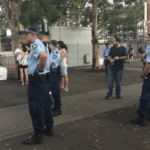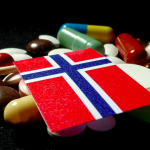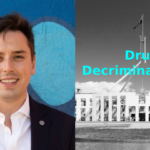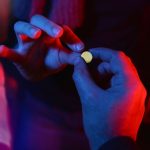Former Rugby League Star Charged with Drug Possession

Former Manly Sea Eagles Player Brett Stewart has been arrested and charged with possession of a prohibited drug.
Northern Beaches Police have confirmed that Brett Stewart was arrested on suspicion if carrying cocaine in Manly on the Northern Beaches last month.
It’s unclear how much cocaine Mr Stewart was suspected of what he was in possession of when he was arrested.
However, he has not been accused of ‘deemed supply’ which may suggest he was found with less than 3 grams of the drugs.
In that regard, a person may be charged with deemed supply if he or she is found to be in possession of at least the traffickable quantity of a prohibited drug; which, for cocaine, is 3 grams.
Brett Stewart played more than 200 games for the Sea Eagles before retiring in 2017. He occasionally provides contracting mentor services to the club, and has since ending his professional career opened a Japanese restaurant.
He will face Manly Local Court on Wednesday 19 April 2023.
Not the first time on the wrong side of the law
It is certainly not the first time Mr Stewart has found himself in trouble with the criminal law.
In 2009, he was charged with sexually assaulting a 17-year old girl in the street.
He vehemently professed his innonence but was nevertheless suspended from the NRL pending the outcome of the case pursuant to the league’s ‘no fault policy’; which for all intents and purposes considers an accused person to be guilty until they are cleared of criminal accusations.
He was ultimately found not guilty following a three-week jury trial, but not before his life and career were damaged beyond repair.
What is the maximum penalty for drug possession?
The maximum penalty for drug possession in New South Wales is 2 years in prison and/or a $2,200 fine.
When it comes to drug charges, the amount and type of drug found by police will determine both the severity of the charges, and the likely penalty handed down by the courts.
The court which finalises the matter will also have an impact on sentencing – a magistrate in the Local Court has a more limited range of powers than Magistrates in higher courts, such as the District Court or the Supreme Court.
If a matter is heard in the Local Court and the offence attracts a maximum penalty beyond the jurisdiction of the Local Court, the judge must still order a sentence reflecting the objective seriousness of the offence, but is not able to exceed the sentencing limits of the Local Court.
What is a ‘traffickable quantity’ of a prohibited drug?
As stated, a person who is found with at least the traffickable quantity of a prohibited drug can be charged with deemed supply for merely for possessing it.
The provisions for doing this are contained in section 29 of the Drug Misuse and Trafficking Act 1985 (NSW).
The traffickable quantities for some of the most frequently found prohibited drugs in New South Wales are as follows:
– 0.75 grams of MDMA (‘ecstacy’),
– 3 grams of amphetamines, cocaine or heroin, or
– 300 grams of cannabis.
If a person is charged with deemed supply, it is assumed under the law he or she intended to supply the drugs to other people.
The onus is on the defendant establish ‘on the balance of probabilities’ (in other words, that is it more probable than not) that he or she possessed the quantity of drugs for something other than supply; for example, for personal use only.
Deemed supply is an indictable offence, which means it may be referred from the local court to a higher court such as the district court for finalisation.
Cocaine use on the rise post-pandemic
Since lockdowns ended in Sydney cocaine use has started to rise and according to the statistics, cocaine usage is higher in Sydney than anywhere else in Australia. It has always been considered the party drug of the rich and famous, but a lot of people splurge on the drug for cocaine for special occasions.
There have been a number of significant cocaine busts recently.
During the course of 2022, the AFP In reported several interceptions of Colombian cocaine worth more than $900 million.
In December 2022, just prior to Christmas, more than 100 people were arrested in a special NSW police taskforce aimed specifically at the ‘dial-a-dealer’ network. Earlier this year, The AFP partnered with other police forces around the globe to stop 2.4 tonnes of cocaine, worth $1 billion, from reaching Western Australia.
Supply and demand
This confiscation of supply has of course, has driven prices up with some reports that the cost of cocaine has reached an all-time high of $420 per gram on the streets.
And of course, when there is limited supply, but high demand, there’s always the concern that dealers will tamper with purity, which can present a very real danger – and is why there are continued calls for pill testing.







